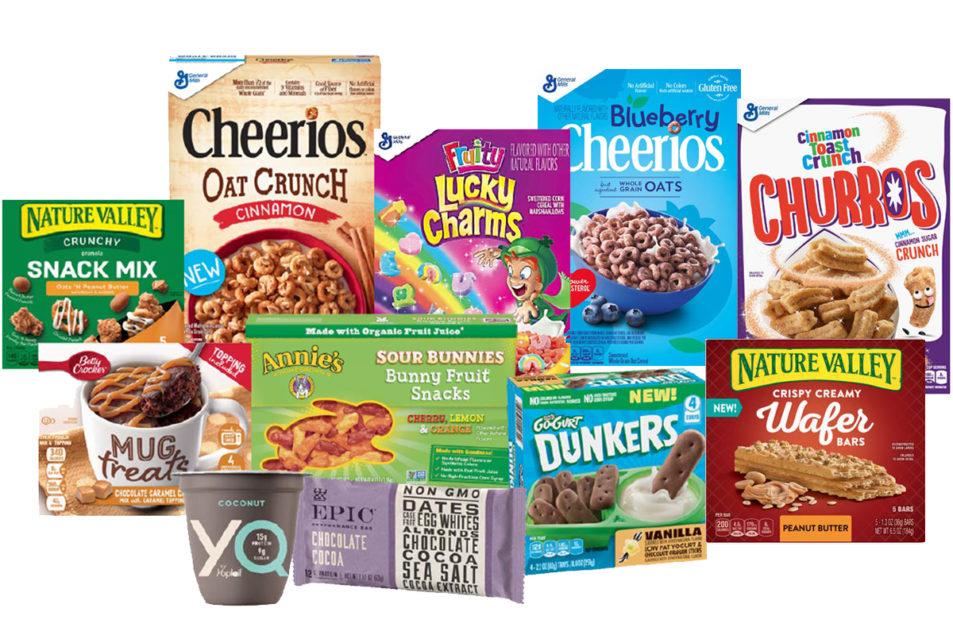Packaged food corporations like Hostess, Mondelēz, General Mills, PepsiCo, and Coca-Cola, as represented by the Consumer Brands Association, are implying that they may sue the Food and Drug Administration (FDA) for its proposal of what would be deemed “healthy.”
The FDA put out the guidelines in September, arguing that to be marketed as “healthy,” foods would have to include a certain amount of key nutritious ingredients, like fruits and vegetables, and have little added sugar, sodium, and saturated fat.
While the FDA’s proposal would not ban unhealthy foods, those that don’t meet the standard couldn’t be labeled as healthy.
In a 54-page comment, the CBA says the FDA regulation infringes on food companies’ First Amendment rights.
The CBA argued that limiting the truthful and non-misleading use of the word ‘healthy’ in product labeling could harm both the consumer and the manufacturer.”
The CBA added that the FDA may not have the legal authority to set such a strict limit on added sugar due to a “lack of scientific consensus on the relationship between sugar intake and diet-related disease.”
Other food groups are also raising a howl against FDA’s proposal.
SNAC International, which represents chip makers Frito-Lay and Utz, is complaining that the FDA’s restrictions around added sugars and salt are too restrictive.
Brands represented by the National Pasta Association, including Barilla and De Cecco, argue that noodles are healthy because pasta eaters often have higher-quality diets, and eat more vegetables.
American cereal makers, including General Mills and Kellogg’s, are also urging regulators to reconsider the definition.
Pickle Packers International also noted that their product won’t be considered healthy under the FDA’s definition because of its saltiness, even though pickles have a role to play in a healthy diet because they are predominantly comprised of vegetables and serve as a delicious condiment to other nutrient-dense foods.
Meanwhile, frozen-aisle favorite, Healthy Choice, says following the FDA’s new guidelines would alienate their consumers.
Conagra, the food giant behind the brand, pointed out that if the food does not taste good, people will not buy it, and the health benefits Healthy Choice has conferred for over 30 years may disappear from the market.



 FDA Says No Black Box Warning Planned for COVID-19 Vaccines Despite Safety Debate
FDA Says No Black Box Warning Planned for COVID-19 Vaccines Despite Safety Debate  Federal Reserve Faces Subpoena Delay Amid Investigation Into Chair Jerome Powell
Federal Reserve Faces Subpoena Delay Amid Investigation Into Chair Jerome Powell  Weight-Loss Drug Ads Take Over the Super Bowl as Pharma Embraces Direct-to-Consumer Marketing
Weight-Loss Drug Ads Take Over the Super Bowl as Pharma Embraces Direct-to-Consumer Marketing  California Sues Trump Administration Over Federal Authority on Sable Offshore Pipelines
California Sues Trump Administration Over Federal Authority on Sable Offshore Pipelines  Citigroup Faces Lawsuit Over Alleged Sexual Harassment by Top Wealth Executive
Citigroup Faces Lawsuit Over Alleged Sexual Harassment by Top Wealth Executive  Amazon Stock Rebounds After Earnings as $200B Capex Plan Sparks AI Spending Debate
Amazon Stock Rebounds After Earnings as $200B Capex Plan Sparks AI Spending Debate  U.S. Condemns South Africa’s Expulsion of Israeli Diplomat Amid Rising Diplomatic Tensions
U.S. Condemns South Africa’s Expulsion of Israeli Diplomat Amid Rising Diplomatic Tensions  Gold and Silver Prices Rebound After Volatile Week Triggered by Fed Nomination
Gold and Silver Prices Rebound After Volatile Week Triggered by Fed Nomination  Eli Lilly and Novo Nordisk Battle for India’s Fast-Growing Obesity Drug Market
Eli Lilly and Novo Nordisk Battle for India’s Fast-Growing Obesity Drug Market  Court Allows Expert Testimony Linking Johnson & Johnson Talc Products to Ovarian Cancer
Court Allows Expert Testimony Linking Johnson & Johnson Talc Products to Ovarian Cancer  Sony Q3 Profit Jumps on Gaming and Image Sensors, Full-Year Outlook Raised
Sony Q3 Profit Jumps on Gaming and Image Sensors, Full-Year Outlook Raised  Bank of Japan Signals Readiness for Near-Term Rate Hike as Inflation Nears Target
Bank of Japan Signals Readiness for Near-Term Rate Hike as Inflation Nears Target  Alphabet’s Massive AI Spending Surge Signals Confidence in Google’s Growth Engine
Alphabet’s Massive AI Spending Surge Signals Confidence in Google’s Growth Engine 































